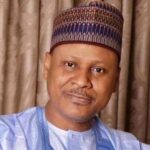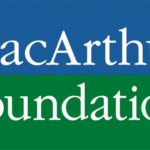One of the biggest myths around migration is that most African migrants move to Europe and America for social or economic reasons. Though the number of Africans migrating outside the continent has more than doubled since 1990, most movements still happen within Africa.
This and more constitute a spectrum of wrong narratives about African migration that journalists and civil society organisations were urged to retell accurately—through facts and figures—at a weeklong training programme on migration held in Victoria Falls, Zimbabwe, from June 3 to 7, 2024.
Organised by the Africa Union (AU) with funding from the International Centre for Migration Policy Development (ICMPD), the training exposed about 20 participants, comprising journalists and CSOs from across the continent, to simulation sessions on migration governance, policies and development.
Trainers and participants identified gaps in the coverage of migration issues in Africa and the need to scale up efforts to plug the holes.
“A lot of the news we get in Africa about migration comes from the western media. We should tell our own story, and our media should have facts and figures to report about migration accurately,” said Peter Mudungwe, Senior Technical Adviser for Migration Governance and Liaison at AU.
- AU, UNESCO seek action on 100 million out-of-school children
- Tinubu breaks silence on Eagle Square fall, says ‘Social Media is confused’
“The media also needs to report on the integration of Africa and how migration plays a part in issues around free movement, which the AU is facilitating in Africa,” he added.
Barbara Cuzuioc-Weiss, ICMPD Senior Project Manager, explained that migration is a crucial topic, and it is very important for journalists and other stakeholders in the communication space to be conversant with the right terminologies, sources and data to better inform the public.
“This is why it is crucial to ensure the professionals are properly trained. Journalists are one of the main sources of information, and in that sense, it is important that they contribute to the debate in a proper way so that the general public is properly informed on migration,” she said.
Her thoughts resonated with the conversational dimension throughout the training as participants were taken through engaging modules on migration governance and other related issues.
“Including journalists in conversations about migration can help bring this important topic into the public sphere,” one of the trainers, Dr. Kudakwashe Vanyoro from the University of the Witwatersrand in Johannesburg, observed.
“We often think of migration as a social process, but we miss the people behind it. Their experiences are complex and made difficult by many policy structures that respond negatively to migration. Journalists are just the people we need to build a more positive narrative about migration for the benefit of both migrants and their host societies,” Vanyoro stated.

In her welcome remarks, Chief Director of the Department of Immigration Zimbabwe, Ms Respect Gono, said the training came at a time when African migration is continuously suffering from negative reportage, misrepresentation, exaggeration and stereotyping, resulting in the distortion of the truth about migration.
She said, “It is important to highlight that media framing has potential to influence people’s perceptions, to shape people’s attitudes and to generate negative public opinions. This often compels and elicits impulsive responses from authorities and policymakers. These usually come in the form of anti-immigrant laws and policies that will negatively impact migration governance.
“It is unfortunate that certain sections of the media tent to dwell more on the negative aspects of migration at the expense of benefits that accrue from migration. It is against this background that the need for training of this nature cannot be overemphasised. We need to change the narrative and amplify the success stories of migration more than the challenges associated with it.”
Alignment with AU Media Fellowship
Interestingly, the training is in consonance with the objectives of AU Media Fellowship targeted at building the media capacity to drive Agenda 2063 of Africa We Want and advance African narratives.
Amira Sayed, a participant from Egypt and AU Media fellow, believed the training came at a critical time when there are many geopolitical changes taking place on the continent with direct impacts on the migration ecosystem.
“From the very beginning, the AU Media Fellowship is trying to hone the skills of the media professionals in Africa to tell the African stories through African voices. This is in tandem with the broader strategy to change the narratives around Africa and when we are speaking about migration, it is a cross-cutting issue. Therefore, it’s very important to enhance or expand the knowledge of the African media professionals on this topic in light of the many misconceptions related to it.
“It is very important to understand the migration governance and the accurate terminologies. The most important thing is acknowledging the role of media in migration governance being one of the key stakeholders in this topic. This also gives media professionals access to credible sources of information on the topic,” she said.

Participants’ testimonies
The AU Migration Governance Training Programme provided an excellent platform for exchanging ideas and gaining new insights into migration issues, Tabitha Wangechi, another participant and Founder, Digital Rurals in Nairobi, Kenya, remarked.
As a representative of civil society, she said she found the programme particularly beneficial to learn correct terminologies for discussing migration and deepen her understanding of the legal frameworks.
“This knowledge will significantly enhance my advocacy efforts in defending the rights of migrants. The training has equipped me with the tools to engage more effectively with government officials and other authorities, holding them accountable during the implementation process. Our goal is to rewrite the migration narrative, ensuring that it is inclusive, accurate, and reflective of the realities faced by migrants,” Wangechi said.
Also, for Mamane Yachaou, development projects manager at ONG Recup in Niger, the training has profoundly enhanced his capacity as a CSO professional in migration advocacy.
“This knowledge is instrumental in advocating for policies that ensure fair treatment and opportunities for migrants, aligning with international standards and human rights principles. One of the most eye-opening aspects of the training was the exploration of the benefits of migration for the development of African countries.
“Migration is often misunderstood and misrepresented. However, the training highlighted its positive impacts, such as the economic contributions of migrants through remittances, the transfer of skills and knowledge, and the promotion of cultural diversity. This understanding is essential for shaping informed advocacy efforts,” he said.

 Join Daily Trust WhatsApp Community For Quick Access To News and Happenings Around You.
Join Daily Trust WhatsApp Community For Quick Access To News and Happenings Around You.


